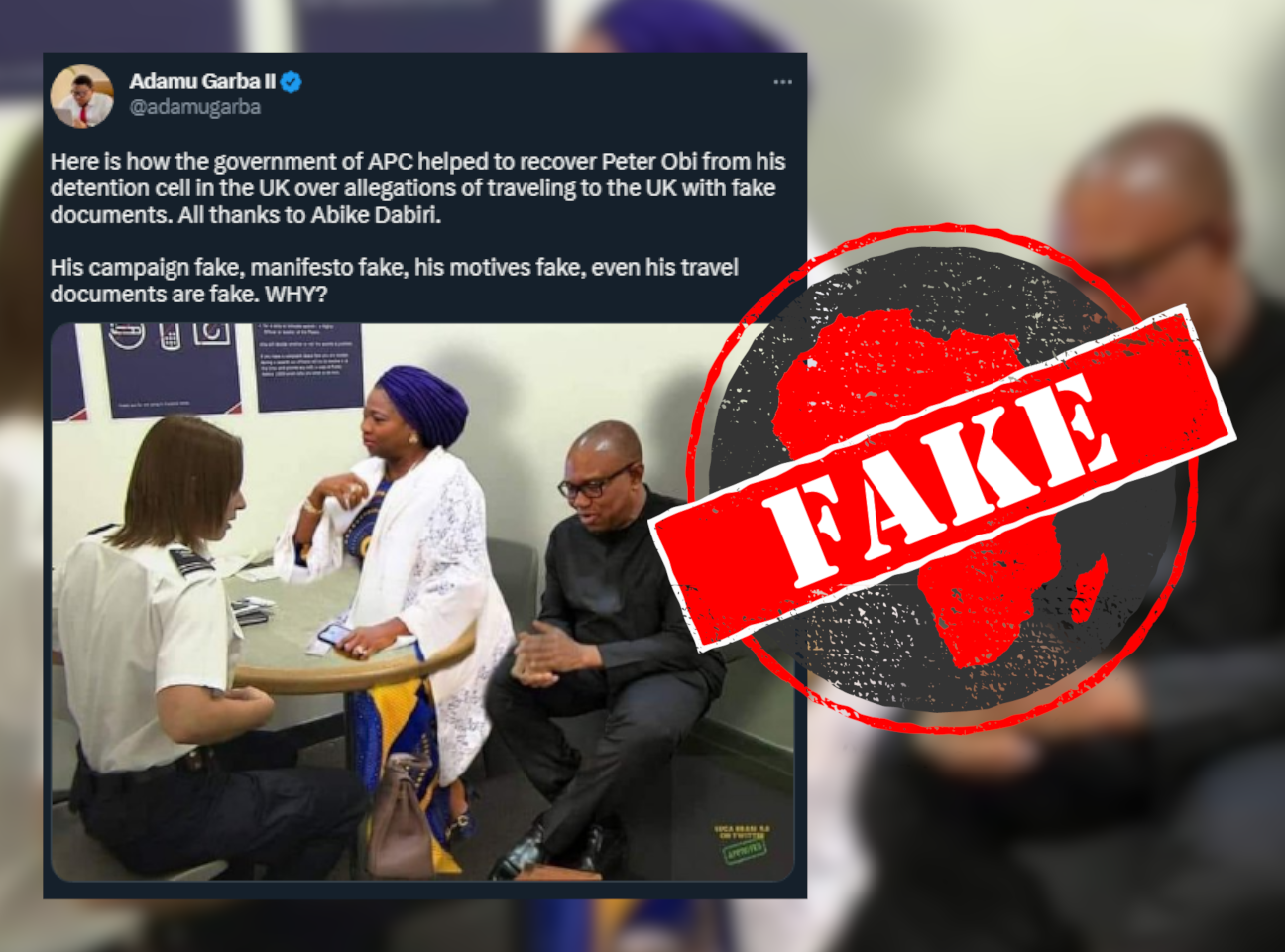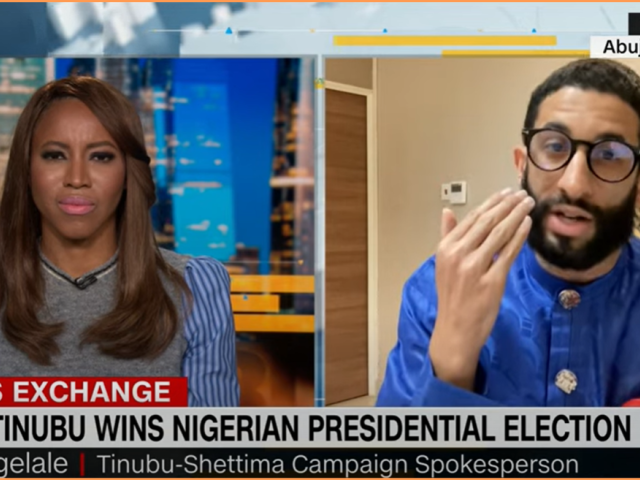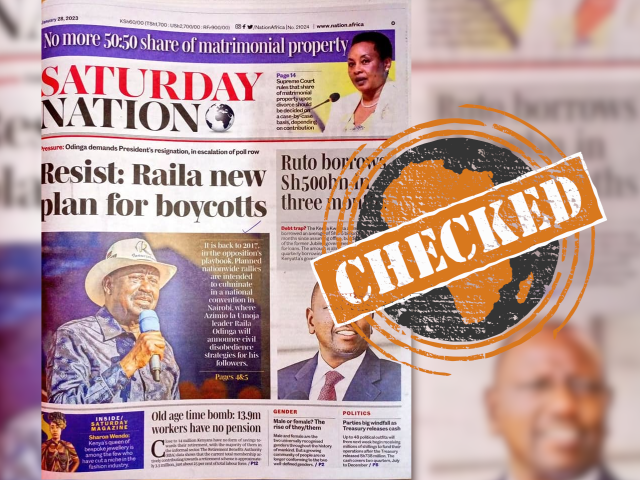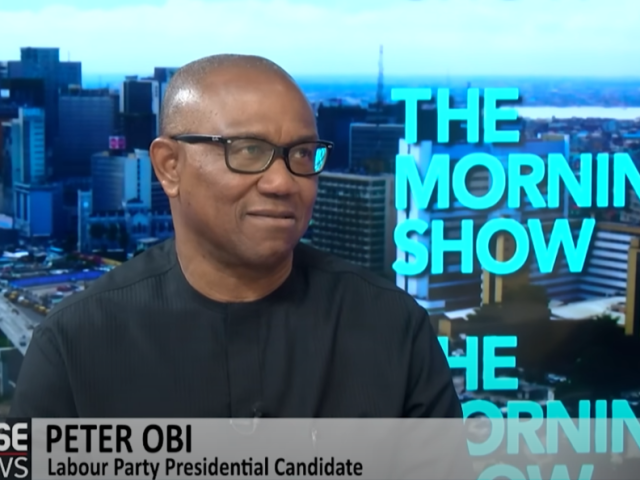IN SHORT: Claims are circulating online that the Nigerian government played a role in the release of a presidential candidate from detention in the UK. But the photo offered as evidence has been doctored.
The Easter holiday plans of Peter Obi, the presidential candidate of Nigeria’s Labour Party, did not go quite according to plan.
On 12 April 2023, his campaign spokesperson Diran Onifad announced that Obi had been detained by immigration officials in the UK on suspicion of impersonation.
Obi came third in Nigeria’s presidential election on 25 February.
As the saga unfolded, Adamu Garba, a former senator in Nigeria, claimed that the government had helped with Obi’s release. Garba made the claim in a tweet to his 126,000 followers on 13 April and attached an image as proof of his claim.
In the image, Obi is seated next to Abike Dabiri-Erewa, the chairperson of the Nigerians in Diaspora Commission, a government-sponsored agency. Both are seated at a small table in front of a person wearing a uniform.
Garba tweeted: “Here is how the government of APC helped to recover Peter Obi from his detention cell in the UK over allegations of traveling to the UK with fake documents. All thanks to Abike Dabiri. His campaign fake, manifesto fake, his motives fake, even his travel documents are fake. WHY?”
Garba is a supporter of the ruling All Progressives Congress, or APC.
The claim and the image have been published on several pages on Facebook, with some of the posts thanking Dabiri-Erewa for Obi’s release.
Garba also shared the post with his 57,000 followers on Facebook. But is there any truth to the claim?

Nigerian government did not facilitate Obi’s release
A closer look at the image makes it clear it has been digitally altered – Obi appears to be sitting on thin air.
By searching online we found it was a mash-up of three different photos. Obi’s photo is one shared during a visit to Nigeria’s former president, Olusegun Obasanjo, in September 2022.
The photo of Dabiri-Erewa was taken during a courtesy call on Nigeria’s naval chief in March 2023. The photo of the immigration officer comes from the poster for a 2010 documentary on Amazon’s streaming service.
Abdur-Rahman Balogun, a spokesperson for the commission, also denied that “the government of APC” had helped with Obi’s release.
Balogun told local newspaper Leadership that the commission’s chairperson was “not in a position to secure the release of any Nigerian suspected to be under UK interrogation”.
Republish our content for free
For publishers: what to do if your post is rated false
A fact-checker has rated your Facebook or Instagram post as “false”, “altered”, “partly false” or “missing context”. This could have serious consequences. What do you do?
Click on our guide for the steps you should follow.
Publishers guideAfrica Check teams up with Facebook
Africa Check is a partner in Meta's third-party fact-checking programme to help stop the spread of false information on social media.
The content we rate as “false” will be downgraded on Facebook and Instagram. This means fewer people will see it.
You can also help identify false information on Facebook. This guide explains how.





Add new comment